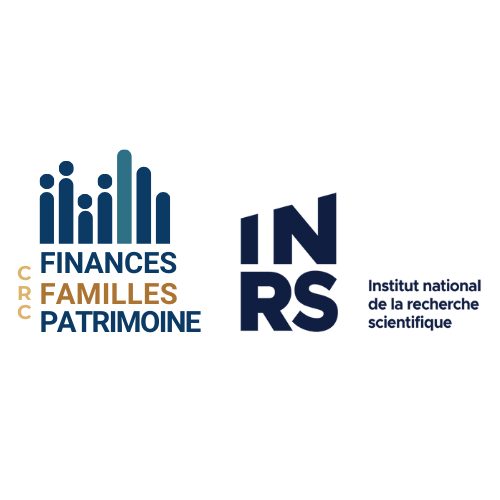Canada Research Chair in Family Financial Experiences and Wealth Inequality
Our projects

Over-indebtedness Among Quebec Households
As part of a research project aimed at documenting debt-related difficulties in Quebec, the Survey on Indebtedness Among Quebec Households (EEMQ) was conducted in 2022 with 4,816 respondents by a multidisciplinary team led by Professor Maude Pugliese. The main results of this study are presented in a research report, summary fact sheets, and other publications in French. Documentation related to the EEMQ is also available.
The projects of our students

Gender Wealth Gap in Mali
Mamadou DialloWealth is a critical aspect of economic and social well-being, serving as a source of security and resilience against job losses and other threats to welfare. Studies have shown that both in Western and African contexts, women tend to accumulate less wealth than men, leading to negative impacts on women’s well-being. In Mali, as in many African countries, there is limited knowledge about the gender wealth gap. Therefore, my project aims to: 1) assess the extent of the gender wealth gap in Mali; 2) investigate the impact of insecurity and climate on the gender wealth gap; 3) explore the gender wealth gap in different living environments (rural vs. urban); 4) examine the influence of polygamy on the gender wealth gap.

Wealth Accumulation and Financial Integration of Colombian Immigrants in Montreal
Diana Peña RuizIn Canada and Quebec, some studies on wealth inequalities have revealed marked disadvantages, both among immigrant populations compared to natives and among women compared to men. Existing quantitative research provides data quantifying these inequalities based on immigration status and gender, but fails to identify the mechanisms through which migrants and women are disadvantaged in wealth accumulation. This research project aims to fill this gap by adopting a qualitative approach to describe the transnational financial trajectories that influence wealth accumulation among Colombian immigrants in Montreal, with a specific focus on gender disparities.

Sunny or Cloudy Retirement : Wealth Gaps Between Quebec Fathers and Mothers Explained by Savings Patterns
Prisca BenoitAs population aging accelerates and employer pension funds become increasingly scarce, understanding savings mechanisms at the individual level and the sources of gender gaps in retirement planning becomes critical. Using quantitative and qualitative methods, my project aims to describe savings management patterns, and to identify the roles and impact of gender on these management patterns among Quebec’s mixed-sex couple family. Particular attention will be paid to the meaning of savings money, the sharing of domestic work and the influence of different social and fiscal policies on savings management.

Understanding the Economic Caregiving Experience of an Independent Parent by Their Adult Child
Laurence MaclureThis project aims to document how adult children manage the assets of their incompetent parents, under the supervision of the Curateur Public du Québec. The Curateur Public du Québec is an organization responsible, exclusively in Quebec, for assisting guardians in managing the assets and personal care of vulnerable individuals, with the mission of protecting vulnerable people and their property.

The Gendered Experience of Estate Planning in Quebec
Camille Biron-BoileauMy master’s project explores the influence of gender on how Quebec testators with children plan their succession. To investigate this question, I draw on theories of care work to see how individuals consider not only the financial security of their relatives, but also the relational and emotional implications of inheritance for them, in making their succession decisions. When it comes to choosing the shares allocated to heirs, negotiating with their family members, and justifying their decisions to those around them, testators perform gender by drawing on different conceptions of femininity and masculinity. Both men and women engage in care work through the succession planning process, but they do so in different ways, leading to different modalities for the transmission of wealth at death.
